Choosing the “wrong” major in university is a hefty and expensive mistake. But while the
decision of a specialty is a huge one that has the potential to impact the
course of your life, you are not alone in figuring out which path to pick.
Family, friends, and mentors can provide advice and counsel, and Jordan even has
a special enterprise specifically designed to help young people select an
optimal degree focus.
اضافة اعلان
Its name is
Hashtat, and it consists of a training center established by computer engineer
Heba Al-Awamleh, who understands that “knowing what one doesn’t want to do is
just as important as knowing what one does want”, in her words.
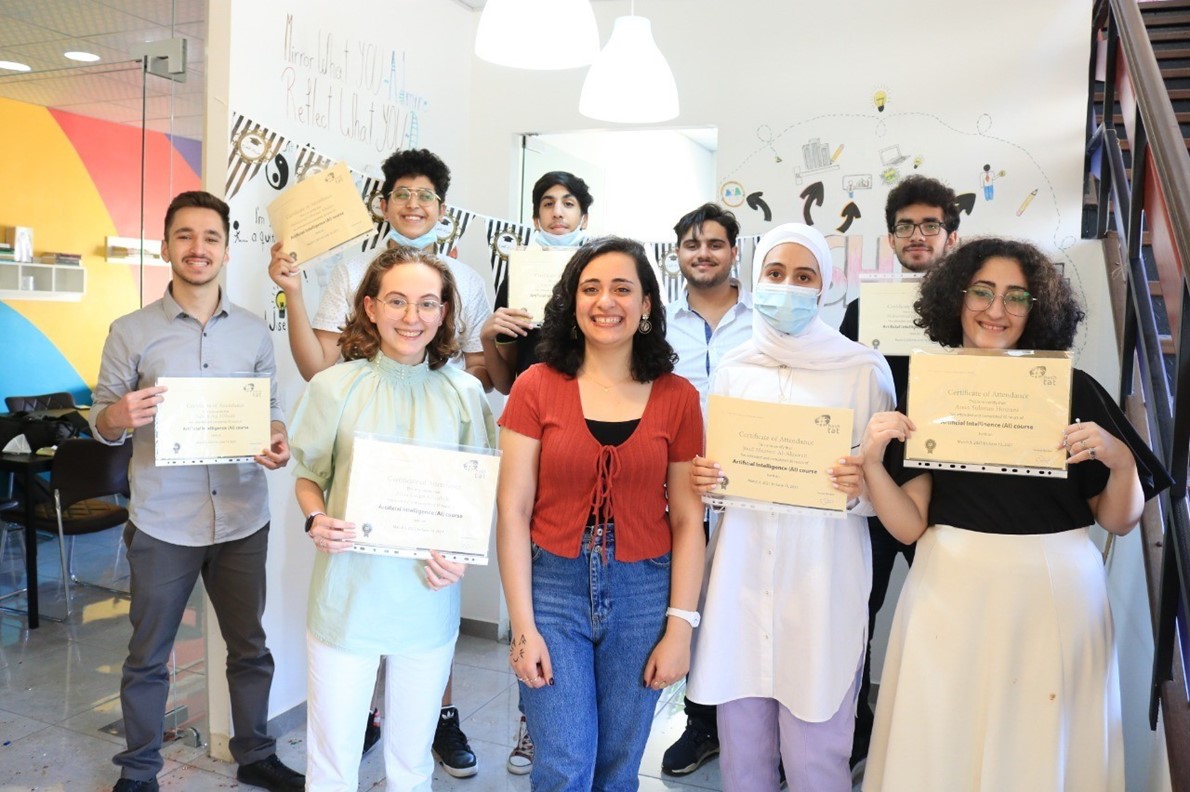
Hashtat assists
young school students to learn about and select academic university majors
through a practical, field-based approach, under the guidance of university
students and fresh graduates. It aims to help future generations in Jordan make
informed decisions and circumvent the difficulties that come with choosing an
unprofitable or simply ill-suited major.
“When I was in
school, I was frequently asked, ‘What do you want to be when you grow up?’ and
‘What are you going to major in?’” Awamleh told
Jordan News.
“These questions
may have begun as a small snowball, but they soon grew into an avalanche. When
I was a teen, I could only evade the questions by answering ‘engineer’. Nobody
questioned my interest in a particular branch of engineering, my familiarity
with the term ‘engineering’, or whether I knew what the discipline entailed,”
she recalled.
“The social
construct and the prestige that comes with being an engineer… I took to it like
a moth to a flame,” she said.
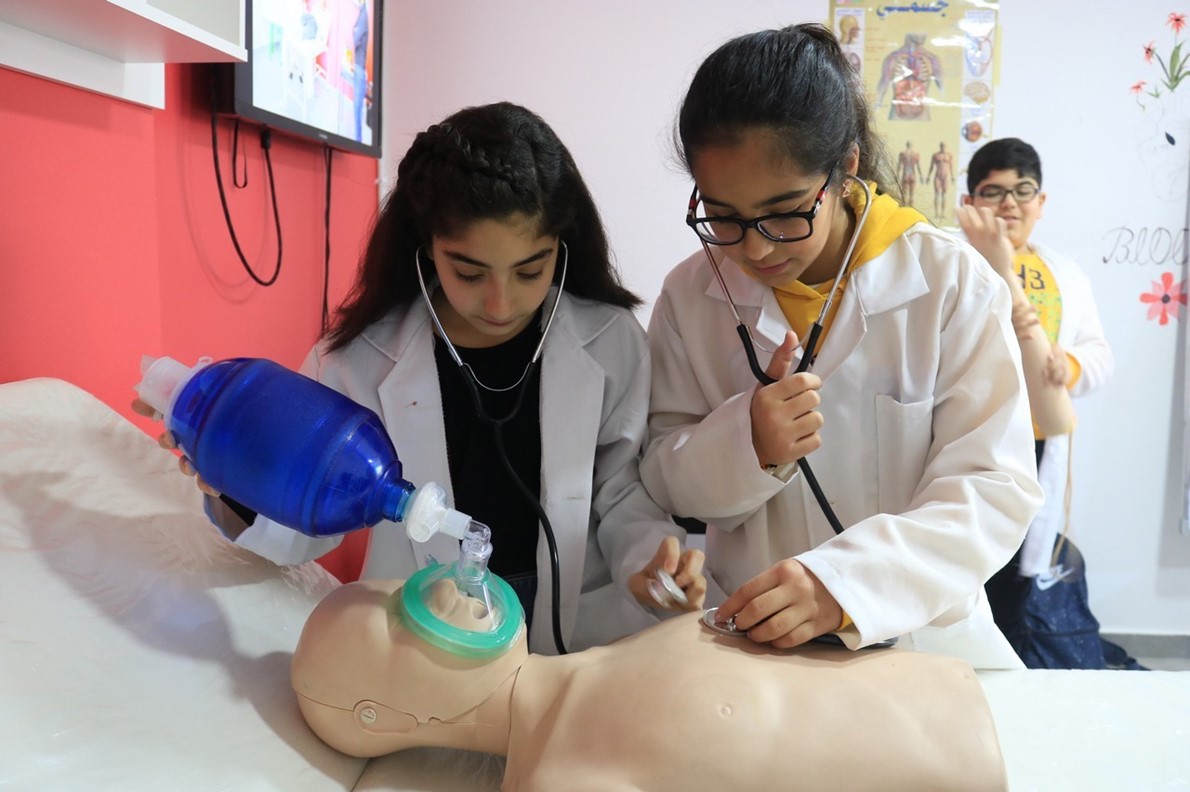
After passing
Tawjihi (Jordan’s general secondary education certificate examination), the
young student started to fill out college applications. She was met with an
unexpected predicament.
There were 21
different engineering categories. Making a semi-blind choice, Awamleh decided
to major in computer engineering, which was a “trendy, cool major” at the time.
But a few months into her freshman year, she suspected that the major might not
be such a good fit. By her third year, it was very clear: computer engineering
was no less than the “wrong” decision — for her.
“By then, we had
started on the heavy-load coursework, and I saw how the theoretical curriculum
clashed with my eagerness to explore the practicality of science,” she said. “I
saw my cohort moving forward, but I was looking backwards.”
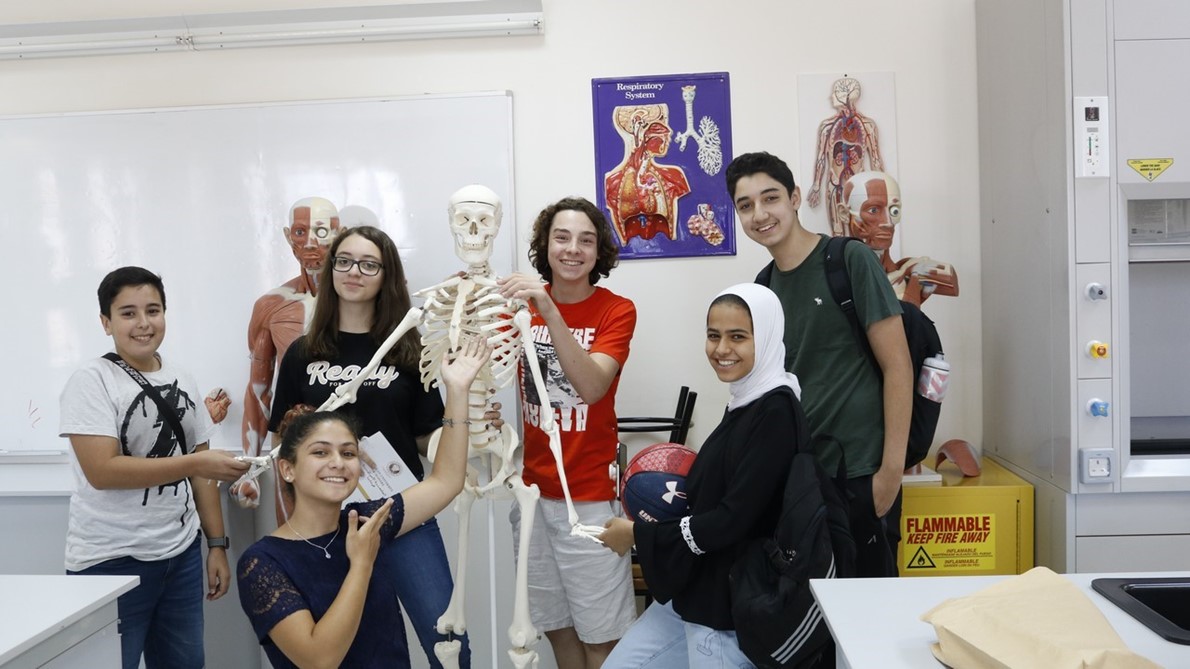
“However, I was
already more than halfway through and there wasn’t a window for a major change
or career shift,” the engineer recalled.
While Awamleh
opted to finish out her degree program, she found herself more and more
absorbed in volunteering to network with like-minded people, sharpen her
skills, and explore other possibilities.
Her own
experience inspired her to help out other fresh high school graduates to
explore potential paths of study logically, and make informed decisions about
their majors.
But when she
founded Hastat, the organization’s first activity, a summer camp, did not go as
planned.

Awamleh realized
that she needed to do her research to hone this enterprise. She took a hiatus
and decided to accept a job offer at a school to get some experience working
with children. She started teaching classes to students of various ages — from
first to eleventh grade. In order to get insight into how children and teenagers
think and see the world. She dove all-in, spending her break time with the
children and sitting with them in the cafeteria.
Meanwhile, she
was conducting in-depth research on children’s training facilities and annual
initiatives to determine how to create tailored programming. By the time she
was ready to redirect her focus towards Hashtat, she was fully armed with
insight and experience.
Awamleh re-hashed
her initiative through a number of programs. She created a “Mini University”
program for students between the ages of 14 and 18 to give them the opportunity
to try out 24 academic university majors. The program practically simulates the
majors through workshops where students create projects and discover their
“tendencies, capabilities, and abilities” in medicine, engineering, science,
business, IT, humanities, and educational studies, among others. Then, to help
the students select appropriate university majors when decision time comes,
they receive a one-on-one mentoring session at the program’s conclusion.
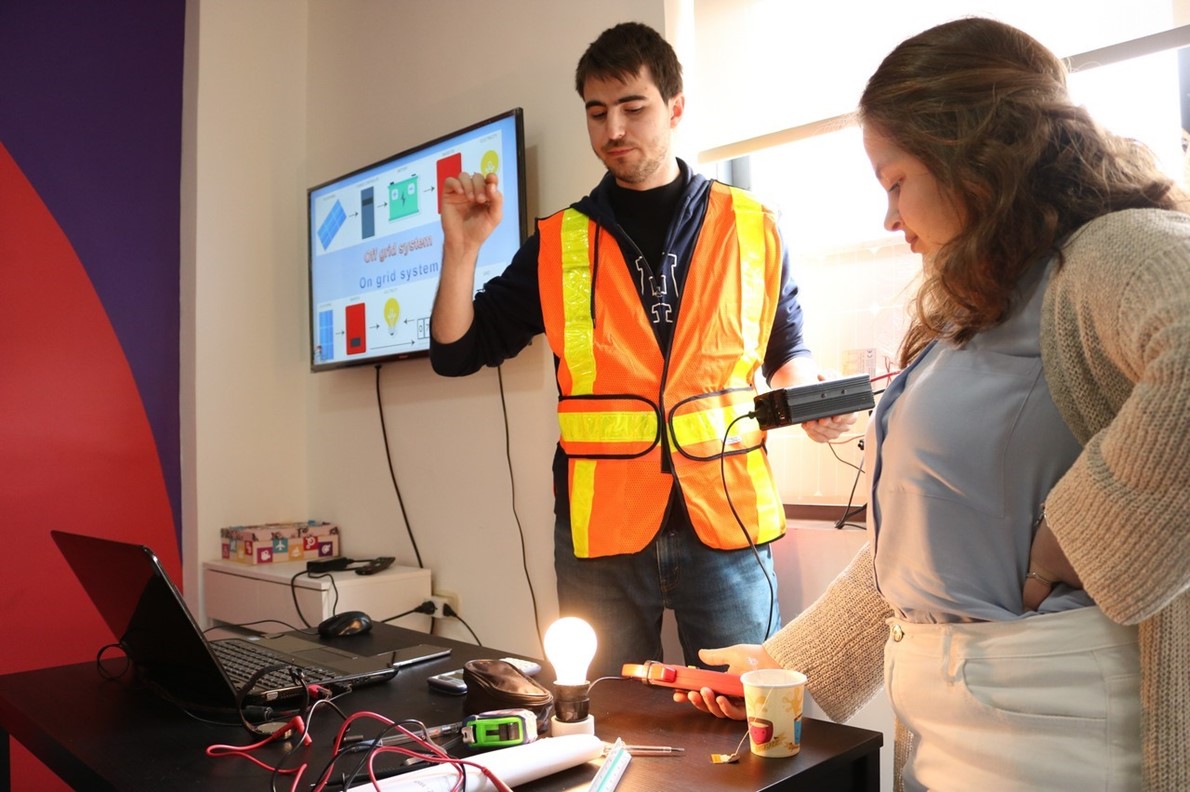
The popular
university branch of the program is “Majors Ambassadors”.
“Hashtat recruits
college students, trains them, expands their horizons, sharpens their
presentation skills, and teaches them how to build a bridge between their
majors and practical applications,” the founder explained. “After passing a set
of trainings and challenges, we provide them with jobs as part-time instructors
in practical workshops, where they train and supervise school students in the
Mini University.”
Other programs, focused
on different age groups, include “Project-Based Learning” and “THAT”. The THAT
program, which targets students between the ages of 11 and 17, reveals their
preferred learning styles, intelligence types, and personality categories while
also helping them develop their concentration, observation, self-confidence,
patience, brainstorming, and imagination.
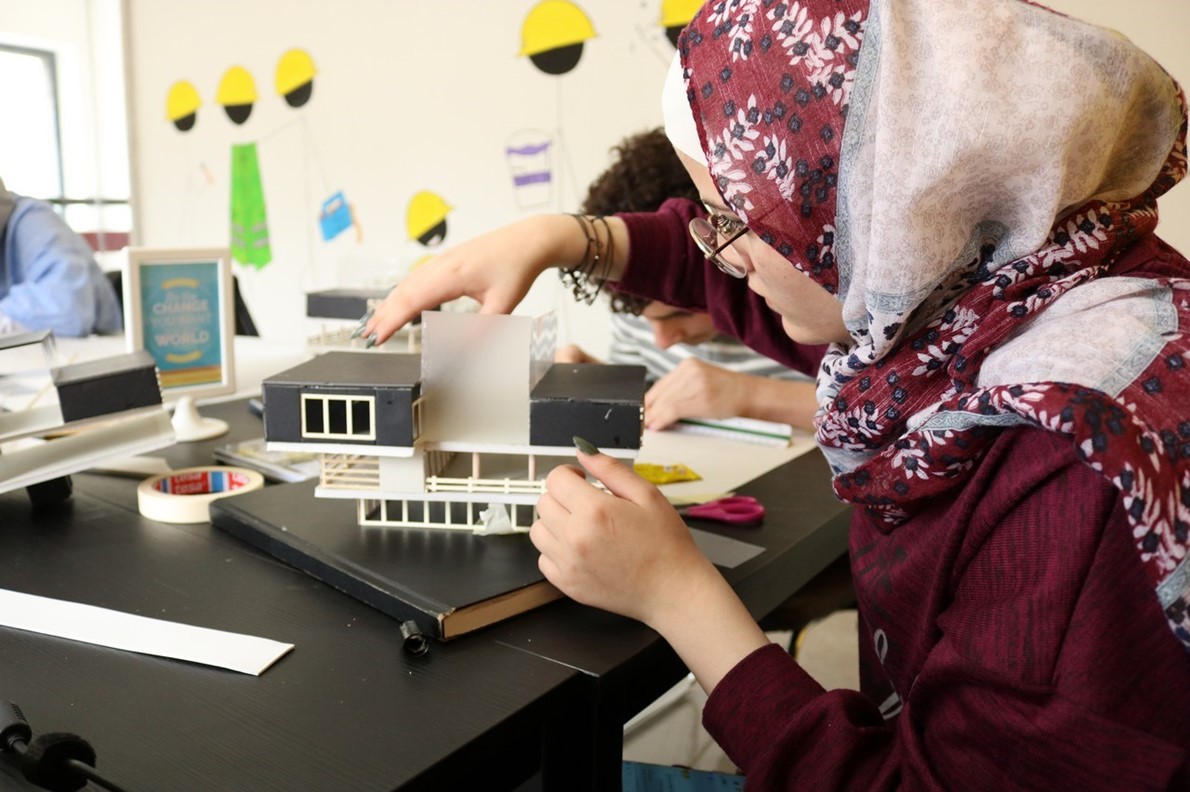
Hashtat also
engages with schools through career days, school trips, and training teachers
who want to connect their subjects to university majors. The organization has
received two grants from UNICEF and USAID, which were used to bring in tools
from the US and develop curricula and methods.
While Hashtat was
booming in 2019, the programming came to a sudden halt in 2020 due to the
pandemic.
“I established
Hashtat to ensure access to practical understanding of university majors, but
that became unavailable the instant the pandemic broke,” Awamleh said.
But where some
people saw only obstacles, the tenacious entrepreneur found an opportunity. “We
managed to launch ten online workshops, a welcome boost during a chaotic year,”
she said.
Nowadays, Hashtat is
picking up the pace as COVID restrictions have been lifted. It is even
expanding — the center has begun to offer career counseling sessions, student
services, and consultations.
Read more Health
Jordan News



